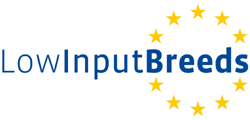(Newcastle/Frick, October 7, 2009) The LowInputBreeds project unites 21 partners from Europe and further afield and will develop integrated breeding and management strategies to tackle the issue of improved animal health and food quality. It will run until 2014 and is co-funded by the European Union’s Seventh Framework Programme for Research and Technological Development.
The full press release is available at the project homepage. The Oops, an error occurred! Code: 2024042622031130f4eb39 and the French versions are available at FiBL.org.
More information
Contacts
- Professor Carlo Leifert, Nafferton Ecological Farming Group, Newcastle University, Stocksfield, Northumberland, UK, Tel. +44 1661 830222, E-mail: C.Leifert(at)ncl.ac.uk
- Dr. Veronika Maurer, Animal Husbandry, Research Institute of Organic Agriculture FiBL, Frick, Switzerland, Tel. +41 62 865 72 57, E-mail: veronika.maurer(at)fibl.org
Project website
- The project website is available at www.lowinputbreeds.org
Project partners
Editorial Note
LowInputBreeds is the acronym of the collaborative project: “Development of integrated livestock breeding and management strategies to improve animal health, product quality and performance in European organic and ‘low input’ milk, meat and egg production”.
The project is co-financed as a Collaborative Project by the European Commission, under the Seventh Framework Programme for Research and Technological Development (Grant agreement No 222623). However, the views expressed in this press release do not necessarily reflect the views of the European Commission, nor do they in any way anticipate the Commission’s future policy in this area.





